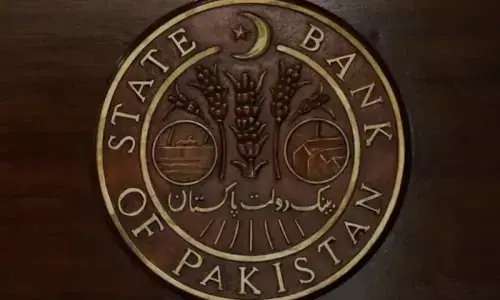EVER since that fateful decision by Pakistan way back in 1948 to ally itself with the United States of America, it has played dual, often antagonistic and at times devilish roles on the global stage. Its geostrategic location has ensured, perhaps unfortunately, that it assumes a pivotal role in all regional conflicts.
Despite being a part of western defence pacts like Seato and Cento, Pakistan was left to fend for itself when it took on its neighbouring rival in 1965 and 1971.
Its international relations' policies made the Soviet Union into an enemy it could very well have done without. It was thus that Pakistan was forced to fight America's war in Afghanistan to ward off the threat of communism which had assumed a national significance for it.
It was with the patronage of the Pakistani government that peace was brought to war-ravaged Afghanistan through the installation of locally bred and groomed Taliban. Little did we know during the mid-1990s that we would be asked to dismantle the government which we had lodged in place a couple of years down the road.
With the unleashing of the war on terror, Pakistan was again a frontline state tasked with the humungous assignment of obliterating all traces of the Afghan rulers which it had so painstakingly worked to install.
Seven years down the line, the combined forces of Nato seem unable to stem the tide of discontent and unease which is taking the Afghan nation by storm.
Frequent attempts to rein in political sentiment in the war-torn nation have proved futile, with the result that Hamid Karzai cannot venture outside the capital and proclaim his right to rule. Small chieftains have defied the biggest superpower. Frequent suicide blasts have taken millions of lives.
As bodies of dead Americans wrapped in the stars and stripes are flown home by the dozens each week, more and more Americans are beginning to realise that they have been unwilling participants in a war which they never agreed to be a part of.
Dying for a cause which was blown to smithereens the moment mounting evidence of vested interests surfaced, the American nation has realised that they had been befooled by popular patriotic sentiment which was played to the utmost advantage by the Bush administration.
Perhaps, the decision by the American nation to oust the Republicans out of power is a proactive manifestation of their discontent.
With the Democrats all set to take over the White House come November, Pakistan, it seems, will now be asked to dance to a different set of tunes. Politics of reconciliation with the Taliban will now rule the roost at least for the next few years. Pakistan, for the third time in recent history, will again be a frontline state.
Like in a game of chess, Pakistan is but a mere pawn. Being a frontline state inadvertently necessitates that it should become the first casualty in any game. Pawns are after all, the first lines of offence and defence.
To placate the Afghans will be no mean feat, especially for a nation like ours which has done more than its fair share in appeasing the western nations. Any attempts will be viewed with hostility but what would be interesting to note is how and when Pakistan is given the ultimatum with us or against us.
Past experience is sufficient proof of our would-be acquiescence but what remains to be seen is the identity of the first casualty of this expected paradigm shift. Astute analysts have observed that a military dictator seems to suit American interests very well whenever Pakistan is called upon to play the role of a frontline state.
With the collapse of the coalition, the stage is all set for Ashfaq Kayani to wear the mantle of a dictator. It seems that our attempt at sham democracy is just not destined to succeed. So, let the drums roll to herald another era of US-Pakistan relationship.
AYESHA ARIF BAWANY
Karachi






























